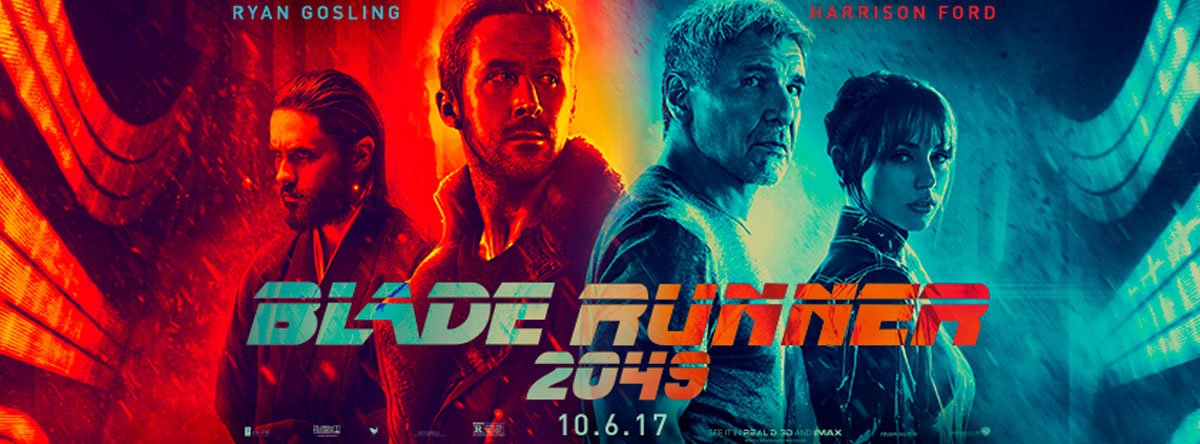
The original 1982 film ‘Blade Runner‘ is one of the darkest, most existential and most profound movies in the entire science fiction genre, a landmark that has influenced all science fiction since. Set in the near future, it takes place in a dirty, urban world where off-planet work is so hazardous that replicants, genetically engineered humans, have been created to help humanity spread to the stars. Until the most advanced of them, Nexus 6 units, have a crisis of identity and head back to Earth to meet their maker. Decker (Harrison Ford) is tasked with tracking them down and killing them, the replicants that are “more human than human.”
‘Blade Runner 2049’ takes place 30 years later and much has changed, though the world is still dark, messy and neon-lit, a place where 50-foot tall naked holograms of perfect women are ignored by pedestrians eager to avoid the toxic rainfall on their way back to the concrete cubicles they call home.
This sequel revolves around LAPD detective “K” (Ryan Gosling), who is tasked with finding and eliminating the last remaining Nexus 8 replicants that are hiding out on the planet. But there’s a much bigger mystery that he stumbles into, one that will have thoughtful viewers questioning the identity of almost everyone in the film. In a world where more human than human is a foundational concept, the existential question of who is human and what it means to be human is tantamount.
K works for Lieutenant Joshi (Robin Wright) and cohabitates with girlfriend Joi (Ana de Armas) when he’s not flying around trying to help keep greater Los Angeles safe in these dark times. Billionaire Niander Wallace (Jared Leto) and his associate Luv (Sylvia Hoeks) cross paths with K as part of the investigation into the Nexus 8 units he’s tasked with tracking down.
For someone who hasn’t seen the original, ‘Blade Runner 2049’ delivers a satisfying, epic science fiction adventure, a mystery that touches on some grand questions. If you are familiar with ‘Blade Runner’ — and I strongly recommend you watch it before you see ‘2049’ — the sequel is a film bordering on genius, easily one of the best sequels I’ve ever seen.
Having said that, there are so many spoilers that could ruin the reveals and provocative nuances of the story that there’s not much storyline I can actually share with you. Instead, let’s talk about production value. The original 1982 ‘Blade Runner’ set a new standard for sci-fi movies with its innovative visual effects and powerful, evocative soundtrack. ‘Blade Runner 2049’ continues the tradition, offering up a beautiful, seamless, visionary epic with some of the most beautiful shots we’ll see on screen this year and a soundtrack that pays homage to the original Vangelis score while taking the musical aspects in new directions simultaneously.
If you’re steeped in the original film, as many are in the sci-fi world, there are so, so many thing to love in ‘2049’ that you’ll be ready to immediately hit the restroom, refill your tub of popcorn, and watch it a second time to catch all the nods and homages to the original. Which brings me to one of my very few criticisms of the film: it’s long. It’s really long. Almost 3 hours long, and there are a few points where it feels like it plods along.
Great cinema is about story, and great science fiction cinema is about finding the intersection of science – a believable universe that surprises and delights us viewers – and fiction – the story of the film. ‘Blade Runner 2049’ is that rare combination of epic film that can be enjoyed purely for its production values, sets, costumes, lighting, visual effects and soundtrack, but can be enjoyed much more by paying close attention to the profound story it tells.
This is already one of my favorite films of 2017 and I’m eager to see it again. And, possibly, a third time on the big screen before I buy the inevitable 4K version for home viewing. It’s that good.
![]()
